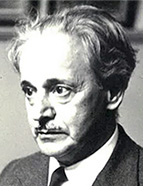

He became publicly known as t he author of an essay entitled “ Dispersão do Pensamento Filosófico Português” [ Dispersion of Portuguese Philosophical Thought ] (1943). This trait, relating to an ideal type, appears as a hypothesis with interpretative scope, thus requiring subsequent case-by-case verification. Defining this ideal type based on three aspects, “ lived pragmatism ” ( OF II , p. 469), “ non-systematic conviction ” ( OF II , p. 470) and “ freedom of thought ” ( OF II , p. 471), he understood it as corresponding to a specific way of philosophising, something more experimental, which he thought was valuable in times of war when compared to the excessively systematic tendency of other national philosophies, such as the German one, which in his view was intolerant starting from the claim of exclusive coherence. Although this position is confirmed in Vleeschauwer ’ s critique of Germanism, its success in “ Do Pensamento Português ” [ Of Portuguese Thought ] (1944) was the result of its usage by the national intelligentsia in the opposite sense , turn ing it into an argument to prove a national deficit of modernity.
Having introduced formal logic in Portugal, he developed an argumentative methodology of deconstruction based on discrete problems and aimed at eliminating pseudo-scientific or pseudo-philosophical evidence while consolidating a rational epistemology with an idealistic inclination, which provided for inventiveness and essayistic progression. Thus, the aim was to change the dominant pattern of rationality in Portuguese society, redirecting it towards contemporary scientific objectivity, also with regard to historiography. Due to his constant criticism of metaphysical overflows and substantive drifts in scientific matters, as well as his use of neopositivist, analytical and pragmatist authors, he was included in the positivist current, a misconception he sought to undo in Pontos de Referência [ Reference Points] (1961), his definitive “ discourse on method’. In it, he clarifies the distinction between positivism as a system, which he constantly criticised as a limitation to knowledge , a criterion to which he regularly turned , and as a positive attitude, “ rejecting a ready-made system and an established limit ” ( OF III , p. 188), which he practised and tried to disseminate.
This work is financed by national funds through FCT - Foundation for Science and Technology, I.P, in the scope of the projects UIDB/04311/2020 and UIDP/04311/2020.
